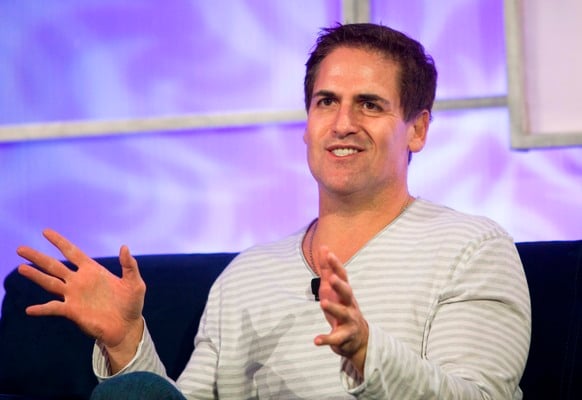Billionaire rebuffs New York Times claim that social networking company's CFO is the culprit
Who is to blame for Facebook Inc. (FB)'s initial public offering? Is it Mark Zuckerberg, Facebook's founder and chief executive officer? Someone else at the social- networking website? Morgan Stanley (MS), the bank that led the deal? Nasdaq, which botched the stock's early trading?
If you lost money on Facebook shares, which have given up about half their value since the company's IPO, the answer is: none of these.
Ever since Facebook debuted in May, only to begin plunging in value within a few days, I hoped somebody of note would speak out publicly to take personal responsibility for losing money on this stock, rather than pointing fingers at others. A few days ago, it happened.
Mark Cuban, owner of the Dallas Mavericks basketball team, wrote a post on his blog in response to a column in which Andrew Ross Sorkin of the New York Times pinned the blame on David Ebersman, Facebook's chief financial officer. Cuban said:
“I bought and sold FB shares as a TRADE, not an investment. I lost money. When the stock didn't bounce as I thought/hoped it would, I realized I was wrong and got out. It wasn't the fault of the FB CFO that I lost money. It was my fault. I know that no one sells me shares of stock because they expect the price of the stock to go up. So someone saw me coming and they sold me the stock. That is the way the stock market works. When you sit at the trading terminal you look for the sucker. When you don't see one, it's you. In this case it was me.”
Ringing True
Bless that man. Cuban may be a sophisticated fellow, in the sense that he's very wealthy and knows the Wall Street game, having once run and sold a public company. But his comments ring even more true for individuals of much lesser means.
As the financial journalist John Brooks wrote in his epic 1973 book, “The Go-Go Years,” about Wall Street during the 1960s: “In the nature of things, the amateur investor remains and probably will remain at a certain disadvantage in relation to the professional. Perhaps his best protection lies in knowledge of that fact itself.”
In spite of the shareholder lawsuits filed against Facebook, I have seen no indication that the company's executives lied to the public about its performance or prospects. Facebook's prospectus warned about the risks. The decline in Facebook's rate of revenue growth shouldn't have surprised anyone. In 2010, sales grew 154 percent. In 2011, they rose 88 percent. By the first quarter of this year, the year- over-year rate was 45 percent. Last quarter, Facebook's first as a public company, it was down to 32 percent.
So where might be the bottom for Facebook's shares? The stock recently was selling for about $19, giving the company a $46 billion market value. Facebook isn't going broke, or at least not anytime soon. Thanks to the money it raised through its IPO, the company had $10.2 billion, or about $4 a share, of cash and marketable securities as of June 30. Even in a worst- case scenario, the stock shouldn't drop that low, assuming Facebook doesn't blow all the money. The company's $13.3 billion of shareholder equity, or assets minus liabilities, works out to a little more than $5 a share.
Last year, Facebook reported $1 billion of net income. Let's say, for argument's sake, that Facebook deserves to trade for 14 times that much, or $14 billion, using the earnings multiple for a typical stock in the Standard & Poor's 500 Index as a guide. That's less than one-third of the market capitalization now. And that may be generous, considering Facebook reported a net loss last quarter.
Long Way
While these are simplistic gauges, they do illustrate that the stock could still have a long way to fall. My guess is a price in the single digits might be worth a flier, and that there is still a huge amount of risk in the shares now. But what do I know? Trying to predict Facebook's stock price is like trying to guess from a distance what a helium balloon might do next after it's already way up in the air.
In an e-mail, Cuban said he wrote his blog post because “I just get annoyed by talking heads in media throwing punches without any real substance.” Asked why he bought the stock, he said: “I thought that there would be traders who would trade the psychology and hype of the stock. Turns out I was the only one trading that way.” Pointing fingers at others, he said, is “the easy way out.”
As for investing advice for the masses, particularly on newly minted stocks, Cuban said: “You don't know enough to invest in individual stocks. You are gambling. If that suits you, great. Go for it. You might win. But realize that no one sells stocks expecting you to make money on the deal.”
So who is to blame if you lost money on Facebook? The fault is entirely your own. This isn't a game for crybabies.
(Jonathan Weil is a Bloomberg View columnist. The opinions expressed are his own.)







